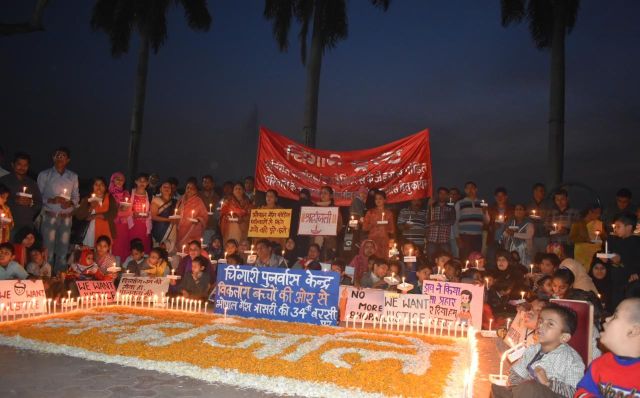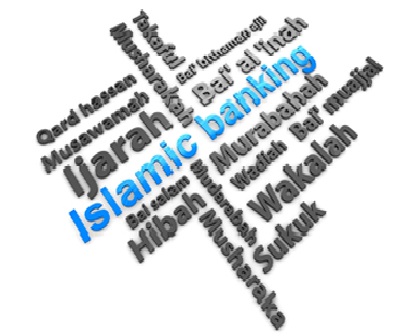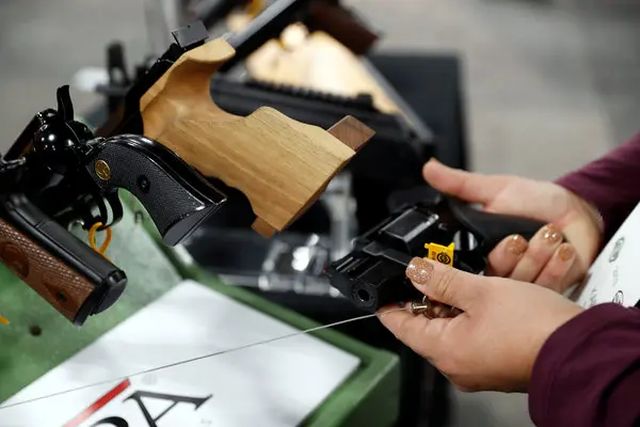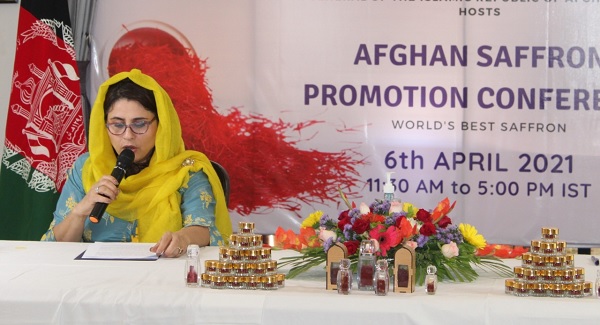
by admin | May 25, 2021 | News

Covid vaccine being administered on a beneficiary in a camp held at Taj-ul-Masajid, in Bhopal
By Pervez Bari
BHOPAL: In order to beat the fast growing tentacles of Covid-19 in Bhopal the district administration used the premises of historical Taj-ul-Masajid, one of the largest mosque in Asia, to vaccinate people of all hues to send the message of communal harmony.
It was a part of Bhopal district administration’s initiative to accelerate the pace of vaccination in the walled city of old Bhopal wherein several hundred people from all communities got vaccinated.
According to SDM Jameel Khan, who also has the charge of CEO of the Madhya Pradesh Waqf Board, people from all religions came here to avail of the benefit. The district administration had only taken the premises of the Taj-ul-Masajid to increase the pace of vaccination.
Jamil Khan prior to seeking permission to use Taj-ul-Masajid premises for vaccination had sought a fatwa from Bhopal Shahar Mufti Abdul Kalam Qasmi about Covid vaccination. Shahar Mufti obliged issuing a Fatwa which said: “If one gets vaccinated there is no harm”.
SDM Jameel said special camps are being organised with the help of community members so that vaccination is done fast and covers most vulnerable sections of the society. Help of religious leaders is also being taken to make the people aware.
Earlier, prior to this camp at Taj-ul-Masajid, Bhopal Shahar Qazi Maulana Syed Mushtaq Ali Nadwi and Shahar Mufti Abdul Kalam Qasmi too had got vaccinated to give message to the residents of Bhopal.
The state government had urged community leaders to come forward to increase the pace of vaccination after which such initiatives were taken by most of the communities. People residing in Sajeda Nagar, Shaheed Nagar, Pari Bazar, Vajpayee Nagar, Royal Market and Eidgah Hills were the main beneficiaries of this vaccination camp. People working in the offices near the historical mosque and shop owners took the jab at this camp.
Chief Minister’s appeal
It may be pointed out here that Madhya Pradesh Chief Minister Shivraj Singh Chouhan had appealed to religious leaders to play important role to stop spread of Coronavirus and promote vaccination.
As such religious leaders took the initiative to give push to the vaccination drive amidst increasing cases of corona. A vaccination camp was organised at Haidery Jamaatkhana last week.
About 300 people from Dawoodi Bohra community got their first dose of vaccination last week. Two teams of doctors and medical staff carried the drive. Mehmood Bhai Janeali, Shoeb Bhai, Abbas Bhai Sara played a key role in making arrangements for the beneficiaries. Local community head Aamil Saheb took this initiative 18 days back and was vaccinated. He appealed to community members to go for vaccination, said spokesperson of community, Hakimuddin Saify.

by admin | May 25, 2021 | News

A three-judge bench terms the PIL as ‘publicity interest litigation’ and warns the petitioner of ‘heavy cost’
NEW DELHI — The Supreme Court on Friday rejected a plea to bar religious conversion and warned the petitioner of fine saying “what kind of writ petition is this under Article 32. We will impose a heavy cost on you. You argue on your own risk.”
A bench of Justices R.F. Nariman, B.R. Gavai and Hrishikesh Roy observed that persons above 18 years of age are free to choose their religion. The observation was made while the bench refused to entertain a plea seeking directions to the Centre and states to control black magic and religious conversion.
The bench told senior advocate Gopal Sankaranarayana, appearing for petitioner advocate Ashwini Upadhyay, there is no reason why a person above 18 can’t be allowed to choose their religion. It further told Gopal Sankaranarayana, “there is a reason why the word propagate is there in the Constitution”.
According to Live Law, the judges also observed that the Public Interest Litigation was nothing but a “publicity interest litigation”, which was of a “harmful kind”.
Sankaranarayanan sought liberty to withdraw the petition and permission to make representation to the government and the law commission. According to PTI news agency, the bench also refused to grant permission to a representation to the law commission and said, “no we can’t grant you this permission.”
It dismissed the petition as withdrawn. The plea filed by Ashwini Upadhyay has also sought directions to ascertain the feasibility of appointing a committee to enact a Conversion of Religion Act to check the “abuse of religion.”
The PIL alleged that incidents of forceful religious conversion by “carrot and stick”, use of black magic, etc., are reported every week throughout the country. According to the petitioner, the victims of such forceful conversions were often socially and economically underprivileged people, particularly belonging to the SC-ST. Therefore, it was contended that it not only offended Articles 14, 21, 25 of the Constitution, but was also against the principles of secularism, which is an integral part of basic structure of the Constitution. It was additionally alleged that the Government has failed to take any concrete action against these menaces of the society.
The plea alleged that religious conversion by “carrot and stick” and by “hook or crook” not only offends Articles 14, 21, 25, but is also against the principles of secularism, which is an integral part of the basic structure of the Constitution.
“Petitioner states with dismay that the Centre and states have failed to control the menace of black magic, superstition and deceitful religious conversion, though it is their duty under Article 51A,” said the plea filed through advocate Ashwani Kumar Dubey.
Alleging that the government has failed to take any concrete action against them, the plea said the Centre may enact a law with minimum imprisonment of 3 years that may extend up to 10 years and a hefty fine may be imposed.

by admin | May 25, 2021 | Islamic Banking, Islamic Finance, News

Dr Aishath Muneeza
Dr Aishath Muneeza, Associate Professor, INCEIF, Malaysia
COVID-19 is a black swan event that has turned back the global poverty clock. Millions have lost their jobs overnight and have no way to find employment due to the lockdown measures taken to adequately deal with the pandemic and save the humankind from being extinct. The first case of COVID-19 in India was reported on 30 January 2020 and on 24March 2020, the Prime Minister of the country announced that the country is going for full lockdown. This caused disruption in all major economic activities and led to increase in unemployment causing extreme poverty as no immediate financial helping hand was offered to them. According to the International Labor Organization (ILO), it is expected that 400 million people in India risk falling into poverty due to disruption in economic activities caused by the lockdown measure taken to control the pandemic.
Islamic social finance though is a relatively a new term compared to Islamic commercial finance, some types of Islamic social finance has been practiced in Muslim societies at all times. For instance, as a form of ‘ibadah (worship) activity zakat is being implemented as it is the third pillar of Islam.The types of Islamic social financial instruments include zakat, sadaqat and ifaq, waqf, takaful and microfinance. Using technology the challenges facing the effective collection, management and distribution of the modes of Islamic social finance can be resolved. However, to adopt technology in this regard, some initial investments will be required and proper technology governance mechanisms ought to be adopted to the Shariah governance and corporate governance mechanisms applied in the respective organisation. Below suggested are some ways in which poor can be assisted in the midst of the pandemic.
- Way to boost funds received for distribution to poor
Prior to the pandemic, the way to collect zakat and other charity funds from the public is normally via by physical presence of the payer. However, the pandemic has made us realise that physical presence might not be an option to contribute funds for the purpose and as such, switching to online payment instant transfer modes could be the most convenient mode available depending on the availability of such option in the respective location. However, marketing such options to masses in the midst of the Covid might be challenging and as such, innovative ways to promote these channels to contribute is important. One way of doing this could be initiate charity round up concept where using retail transactions at either a retail store’s point of sale (POS) terminal or via an online website charity could be made by the purchasers of goods where the price of the purchase goods or the transaction price is rounded up to the next decimal.by increasing the chances of purchasers of goods contributing some cents for charity This approach will eventually make a huge amount when the cents contributed by all are added and accumulated. This is indeed an approach that could be implemented with the assistance from online shop owners and correct affiliations made by Islamic social finance providers would create a sustainable fund to help the poor. Furthermore, online platforms for charity can be introduced in such a way that, the payers can directly contribute an amount to the receiver he or she selects without involvement of a third party to distribution of it. Crypto charity platforms that is created using blockchain technology could be an option in this regard where the technology used in the platform will create confidence among the contributors by giving them the assurance that whatever they contribute has really made a difference to the society and have brought a different to a person’s life. However, to create such a platform and to manage it effectively, some manual processes in terms of identifying the needy will have to be done by the manager of the platform. Without doing this part effectively, the confidence of the payers will not be boosted and the positive impact to the lives of poor at societal level might not be evident.
- Adopting an effective way to make the distribution to poor
In distributing the financial assistance to poor, a comprehensive framework that would not only enable the most deserved recipients to be identified and verified, but it is imperative to put in place the mechanisms to distribute the financial assistance to the poor in a fast and convenient manner without their physical presence. One way of doing this could be via online money transfer mechanisms if the receiver is able to have a bank account or via agents who could be shops or businesses run near the recipient’s geographical location who could be the distribution agents of the Islamic social finance providers. Via a crypto charity platform, the platform manager could enable the poor to be registered and enable to have a digital wallet that would enable the charity payer to directly pay to the poor selected by the payer. In this arrangement, the platform manager shall ensure that there are mechanisms put in place to ensure that the money received in the poor’s digital wallet can be withdrawn by the poor for the purpose required by them. However, it is imperative to note that this mechanism is the most transparent manner in which a payer could ensure that the rightful receiver has received the financial assistance in a timely and convenient manner in real time.
- Introducing a technology based mechanism to locate poor
Internet of Things (IoT) has enabled to use an intelligent device to collect data and use it for a specific purpose. This is a technology that could be used by the Islamic social finance providers to collect data about the poor and also to locate them geographically using GPS feature. This way, there is no need to engage in the cumbersome paper process to register and update the information of poor every time they want to receive financial aid. The idea is that after verifying the poor for the very first time, they could be given a smart gadget like a watch or anything with the required sensors that could be useful to them to use in the process of collection data. However, to put this into practice, investing in internet and the smart gadget will be required from the Islamic social finance provider. However, this could be viewed as a value added and sustainable investment.
- Implementing a ihsan based approach to cross-verify the poor
Verification process of a poor is a normal process that is followed by the Islamic social finance providers. There is no uniform process for this. Some Islamic social finance providers open poor to register via an online portal or by completing a complex form that would be submitted online or physically. After that, an interview process could be conducted with them and then the eligible poor will be notified. There are some instances in which in an honourable manner without being humiliated, the poor can be verified. A major cause for this humiliation is due to the nature of officer’s involvement in the process where the mercy and compassionate standard applied for depends on the character of the officers. As such, in this instance, the officers involved to conduct interviews could be replaced with an Artificial Intelligence (AI) based robo-officer. This approach could be a more ihsan based approach for the poor.
- Eliminating unnecessary registration processes required for poor to receive help
Using IoT technology, using sensors in a smart gadget could assist in determining the poverty level of household and the yardstick that could be used for this could be easily formulated. As such, instead of every time to receive financial aid, registration will not be required and from the data collected, the Islamic social finance provider can easily determine whether poverty is still prevailing in the household or not. This way even the cost on paper work and time on interviewing and verifying the poor every time will be reduced. Therefore, it is imperative to use technology to enhance this process of eliminating registering every time when a poor need to receive financial aid.
- Formulating financial assistance programs that will turn the poor into entrepreneurs and becomes future contributors to help poor
The proverb: “You give a poor man a fish and you feed him for a day; you teach him to fish and you give him an occupation that will feed him for a lifetime;” is true even in the context of providing poor with financial assistance. As such, instead of creating the habit of waiting for financial assistance, using the financial assistance given, Islamic wealth management techniques and the way to become an entrepreneur can be taught in a way where continuous financial and business progress monitoring in made by the Islamic social finance provider. If this approach is successfully implemented, today’s poor will be tomorrow’s contributors eliminating poverty in the society.
- Run social media campaigns to help poor
Social media today is a powerful communication tool that could assist in helping the poor and needy without incurring much financial cost. As such, via social media campaigns to help poor can be conducted by Islamic social finance providers. This way masses could be reached within a few seconds and using a crowdfunding approach, the poor could be helped.There are numerous successful case studies that show result in such campaigned. One example could be the Malaysian case of ‘Love Your Neighbor Penang’ initiative where the organiser through their Face Book page, connect the needy with someone who’s specifically able to assist with what they need.
It is anticipated that by linking Islamic social finance with technology, the population of India who needs a financial helping hand will benefit. Islamic social finance is definitely a mercy to the mankind and what is required is to implement it in an effective manner to assist societies to alleviate poverty. The beauty of Islamic social finance is that it is not a requirement to have an institution to implement it, each and every member of society; individually or collectively has the ability to implement it. As such, the ideas proposed here could be adopted by an individual or an institution and Islamic finance provider in this article could be an individual or an institution. Pandemic clock is ticking; but we have the power to empower the society by alleviating poverty via self-sufficiency. We just need every member of the society to believe that anyone can be a helper by reviving the spirit of brotherhood and solidarity in the society.
Courtesy: INDIAN CENTRE FOR ISLAMIC FINANCE (ICIF)
![Mandsaur youth Sohail’s death in Narcotics police custody a planned murder: Fact-finding team]()
by admin | May 25, 2021 | News
 By Pervez Bari
By Pervez BariBHOPAL: A fact-finding team of Human Rights activists, after due investigation has concluded that the death of a 20-year-old youth namely Sohail Khan in the custody of Narcotics Police on April 2, has concluded on the basis of primary observation to be a planned murder. The fact-finding team after hearing from almost all the sides came to this conclusion.
It may be mentioned here that Sohail Khan s/o Hamid Khan of Mandsaur in Madhya Pradesh died in the custody of Narcotics Police, Mandsaur on April 2 due to brutal beating. Based on the information received from newspapers and other sources, various human rights organizations in Bhopal formed a three-member independent fact-finding team visited Mandsaur. The team comprised of Vasid Khan, general secretary of National Confederation of Human Rights Organizations (NCHRO), Madhya Pradesh, Vijay Kumar of Madhya Pradesh Democratic Rights Forum (MPDRF) and social activist Yusuf Khan.
Members of the independent investigation team went to Mandsaur on 5th April and met the family of the deceased Sohail Khan. Members of the investigation team also met friends and neighbours, including uncle Iraad Khan, brother Murad Khan, brother-in-law Asif Khan. Family members told the team that during the post-mortem, serious injuries were found on the entire body, including Sohail’s genitals. He was brutally beaten up at the Narcotics Police Station. This is why Sohail succumbed to heart attack, they asserted.
For the purpose of understanding the matter, the fact-finding team also met with local journalists and senior social workers. Apart from this, the investigation team also tried to meet Mandsaur Narcotics Superintendent of Police Tiwari but finally it was possible to talk to him over the phone only. When asked about the incident, the Superintendent told that a judicial inquiry is going on in the whole case. So, at this time he cannot say anything. Only after the report comes something can be said he reportedly told the team.
After hearing from almost all the sides, the investigation team found Sohail Khan’s death in police custody on the basis of primary observation to be a planned murder and recommended the following: –
1. There is a severe violation of human rights in the entire case. There has been a gross violation of the Supreme Court guidelines. Therefore, there should be a high level judicial inquiry into the incident under the chairmanship of a retired judge of the High Court within a certain time frame; 2. Immediate dismissal of concerned police officers and they should be prosecuted for murder; 3. In view of the economic condition of the family, compensation of Rs. 50 lakhs should be given to the victim’s family; 4. The lives of family members and eyewitnesses are in danger, so they should be provided judicial protection.

by admin | May 25, 2021 | Business Summit, Events, Muslim World, Social Round-up

Consul General of Afghanistan in Mumbai Ms. Zakia Wardak Delivering opening remarks
Mumbai: (Press release) The Consulate General of the Islamic Republic of Afghanistan in Mumbai, in association with the United States Agency for International Development (USAID) and the U.S. Department of Commerce’s Commercial Law Development Program (CLDP), and Indian Chamber of International Business (ICIB) hosted the Afghan Saffron Promotion Virtual Conference on 6th April, 2021. The program focused on promoting the trade of Afghan saffron to India. Over 100 participants attended, including Indian importers and Afghan exporters. Afghan Saffron recently won the International Taste Award – World’s Best- in Brescia, Italy.
During the opening remarks, Consul General of Afghanistan in Mumbai Ms. Zakia Wardak, the first woman to hold her post, shared that “By promoting the export of saffron, the world’s most valued spice, we are helping to economically empower the farmers, growers, and producers of saffron, many of whom are women.”
USAID/Afghanistan Mission Director Dr. Tina Dooley-Jones shared, “USAID, in collaboration with the U.S. Department of Commerce and the U.S. Department of Agriculture, is working with Afghan and Indian private and public sectors to increase saffron supply, reduce trade costs, and better serve Indian markets and consumers. Together, we are working to improve farming techniques so Afghan farmers can sell more, high-quality saffron while adhering to important safety guidelines. As today’s event demonstrates, we continue to find more effective ways to promote Afghan goods around the world.”
Mr. Shabeer Bashardost, Export Promotion Director, Minister of Industry and Commerce from Afghanistan, notably shared, “In 2019, Afghanistan saffron exports was $17.38 million to India, and in 2020 the exports reached $19.08 million. Over the last five years, Afghan saffron exports to India has increased by 80 percent.”
“Manpreet Singh, President of the Indian Chamber of International Business, commented, “The market opportunity in India for saffron and Afghanistan is wide open. I know that Afghan saffron is winning international quality and taste awards. The price is also right. The only problem is that consumers do not know this.”
This event was attended by dignitaries from World Trade Center Mumbai, Afghanistan Chamber of Commerce & Industries, Afghanistan Women Chamber of Commerce & Industries, World Trade Center- Kabul and Hirat Chamber of Commerce & Industries.






